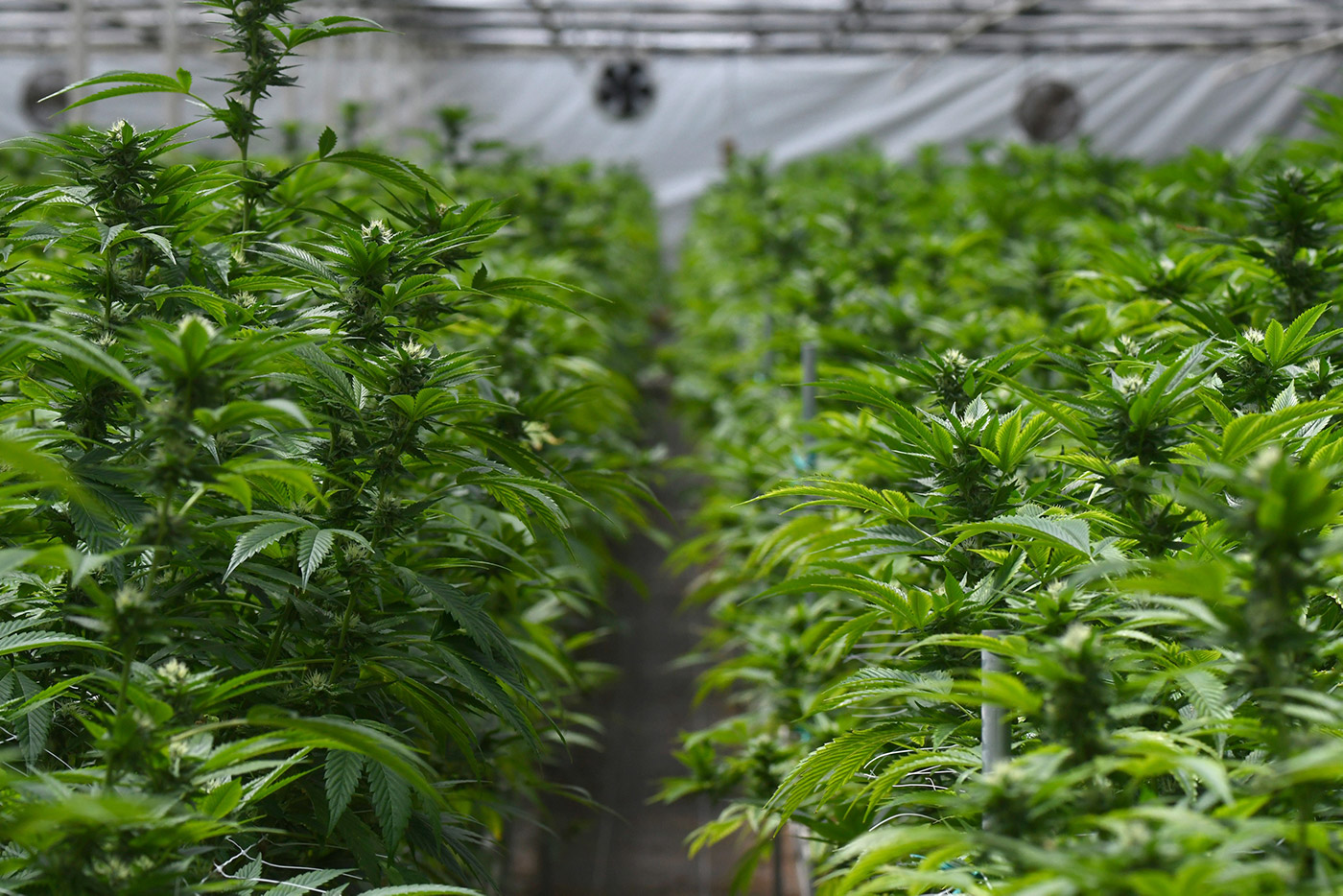Cannabis Grower Appointed to County Ag Board
Santa Barbara Weed Industry Awash in Political Connections and Too Much Product

In the great scheme of things, it didn’t rate so much as an asterisk. As with many historic moments, it passed unnoted, though — like the individual involved — it was in plain sight. The county supervisors unanimously approved John Sherman De Friel’s nomination to the county’s Agricultural Advisory Commission, known to people who attend its meetings as AAC, or “Ack!” — the sound you’d make if someone punched you in the throat.
De Friel may not be a household name, but he is the first cannabis cultivator ever to be appointed to a county board or commission because of his cannabis cultivation prowess. The process of mainstreaming legalized recreational pot clearly still has a long way to go, but De Friel’s appointment Tuesday signifies the extent to which the industry has fully arrived.
In person — bearded, brown-haired, and bespectacled — De Friel looks like someone who could be pouring expensive bean juice at The French Press. But that’s only until he opens his mouth. He’s a certified Big Brain with a graduate degree in bioengineering — almost but not quite a PhD — who genetically designs his own strains. He runs a greener-than-green operation near Buellton, where the pinot grapes like to grow. As a business operator, De Friel is half-cyborg, half-man, having figured out the life span of every plant down to the last drop of evapotranspirated water. He transforms his crop into oil-based resins, which are sold to 130 shops from Eureka to San Diego. As a political animal, De Friel was the one who recognized early on that cannabis growers couldn’t afford to just let legalization happen. As such, he’s led the charge to organize and lobby the county supes on behalf of the new breed of cannabis cats. At public hearings, he’s the one dressed in a yellow Carhartt and farmer-man ball cap, quoting county code in a hyper-caffeinated rat-tat-tat, the way Bible thumpers quote scripture. In other words, he gives off big heat.
Making De Friel’s appointment more interesting still is who nominated him: 4th District Supervisor Peter Adam. Adam is gleefully and outspokenly conservative, a libertarian-leaning Trump supporter who runs a vast family farming empire of his own. On the dais, Adam often seems to be laughing at jokes no one else can hear. But on matters relating to the county’s recreational legalization ordinance, Adam has always been the one board vote De Friel knew he could never hope to get. Adam doesn’t really approve of pot. Even less does he approve of the hyper taxation and regulation of cannabis every step of the way from seed to smoke. But of John Sherman De Friel, Peter Adam approves a lot. “He is the pinnacle of 3,000 years of agricultural evolution,” Adam said of De Friel. “Wow!” I said. Adam laughed. He then explained he describes himself in the exact same terms.
De Friel is the tip of a very big, cannabis-cozy iceberg. It’s no accident that political consultant Mollie Culver — who helped get Salud Carbajal elected to Congress, Cathy Murillo elected mayor, and Gregg Hart all but elected county supervisor — is providing political advice to much of the new industry. Carpinteria growers are represented by California Strategies, a formidable statewide lobbying firm started by former Republican governor Pete Wilson’s former chief of staff Bob White. Big juice. Lieutenant Brian Olmstead — a Republican now running for sheriff — has jumped into the county’s legalization effort with such open arms and expertise that he’s now a featured speaker at cannabis trade shows. At the Santa Barbara Police Department, spokesperson Anthony Wagner — who Chief Lori Luhnow’s hired in lieu of an assistant chief — is a former land-use consultant from San Diego who specialized in getting major cannabis operations approved.
With all this juice, one might think the industry should be fat and happy. It’s anything but. “The green rush is over,” De Friel explained. “The bubble has burst. People are losing their hats.” Sky-high taxes and a regulatory straitjacket are putting a serious cramp in its style. All kinds of operators are declining to make the transition from gray market to legalization. It’s way too complex and way too expensive. Among the promises of legalization is the elimination of the black market. It ain’t happening. In fact, just the opposite. This past weekend, I called a guy I know who does home delivery. He’s one of more than 25 within city limits. I’ve known him 10 years, and I needed help for someone with serious bone-on-bone arthritic pain. He brought along a jar of stinky salve wrapped in a brown paper bag stapled shut. I gave him $60. He’s not getting rich. The transaction took place in his car that could never be confused for a Tesla. He’s a good guy trying to make ends meet in Santa Barbara. He’s actively involved in the cultural life of the town. He walks his dog. He says hi to his neighbors. Under the new rules, he is the new black market. Once enough taxes are collected from people like De Friel, the sheriff will have the funds to chase him down and put him out of business. Under the new regime, there will be much more enforcement, not less. That’s legalization?
I get it. If growers like De Friel operate under the new rules, is it fair they must compete against those who don’t? On top of that, California produces eight times more pot than Californians are currently ingesting. Prices are plummeting. Two years ago, a pound of really good pot went for $2,800. Today, you’d be lucky to get $1,100. Still, the panga boats laden with bales of bad Mexican weed keep on coming. Is pot really the fiscal salvation we all want to believe?



